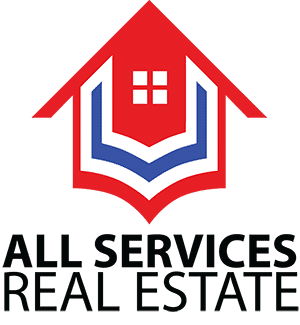Top 5 Buyer Tips
1. Don’t believe the hype (good or bad)
Do your own research to find out if your target neighborhood is hot or not. Pay attention to:
- median property prices;
- data showing the impact of interest rates;
- and the average number of people looking for property in that neighborhood versus the number of properties for sale.
All this gives you a great insight into the neighborhoods you’re considering for your next move or investment so you can leap with confidence into the adventure.
A particularly useful insight is supply to demand ratios and trends over time. These give you the bigger picture of a location and can help you consider the property/neighborhood’s potential.
What matters is whether it’s your right time to buy, for your needs and circumstances. Knowing the state of play is useful to help you calibrate that decision, but shouldn’t be the only thing that motivates.
2. Location & fieldwork
The old property maxim still holds true. But that doesn’t mean inner city rules.
You want a property that delivers what you need now or enough of what you need that you’re happy to compromise for longer-term capital growth.
Be very clear about what matters to you:
- access to major roads;
- public transport;
- shopping or entertainment hubs;
- schools;
- cultural diversity.
Shortlist neighborhoods that deliver on those needs.
Do some fieldwork to make sure the neighborhood’s right for you. Walk around the area you’re thinking of buying in. Grab a coffee or a meal at the local pub. Pretend you’re already living there and see if distances are what they seem, and the atmosphere is living up to expectations.
Of course, it will be a little different once you’re moved in, but experiencing it firsthand gives you a critically useful taste for the reality of that location.
Look closely at what developments or infrastructure is planned around the area in case your quiet corner is about to become a developer’s haven.
3. Consider surrounding neighborhoods
If your target neighborhood is out of budget, consider more affordable neighboring suburbs.
Before you buy, talk to locals to get residents’ views on the neighborhood and its best streets. Reading local publications and connecting with local websites, bloggers or personalities can also give you helpful insight.
If you’re attracted to an area because of its rising value, remember that may spill over into next-door neighborhoods.
4. Look for the upside
Cooler periods in the housing market can be windows of opportunity, so it’s worth keeping an eye on the interest rates and market trends.
Some locations are hitting the bottom of a pricing cycle, so there are bargains to be had.
(Hint: use the search filters on realestate.com.au to look for the oldest listed first to see which properties may have struggled to get up, and may be amenable to negotiation).
If you’re not ready yet, use Spring to prepare to buy in the quieter months of the year, when there may be less competition for the house of your dreams.
5. Talk to the experts
Talk to local agents to find out what’s happening in the market.
You may not get your dream home right away. It’s ok. Consider apartments instead of houses in the location you are wanting to purchase, they are often more affordable and put you in your desired location. Or you may choose a property that needs a little TLC, but ticks other boxes.
Work closely with your agent to develop an action plan and strategy that meets your goals and needs.
6. Get in first
When looking for real estate bargains, ask agents to send you “property alerts” so you are among the first to hear about properties for sale.
Other ways to keep a step ahead include searching via the public trustee, deceased estates, and mortgagee sales.
7. Monitor close to home
If you’re looking to buy a property in an area where you’re already living, take a close look at other properties that go up for sale nearby. Look at how they’re marketed, how well inspections are attended, and how long they spend on the market.
This will give you an indication of how the market is doing in your neighborhood and can guide you on the price you should be paying for a property close by.
8. Inspect smartly
Smart sellers naturally stage their homes to make sure they look their best when you view them. You’d do the same.
Remember to look between the lines (or cushions) for issues that might not be immediately obvious. Take along a list of practical things to check – things like adequate power points, holes, or cracks. That way, if you fall instantly in love, you won’t suddenly forget to sanity check for possible pain points.
Take notes and get your building or pest inspector to follow up on anything unusual or concerning.
Get In Touch
Derek Worchel and All Services Real Estate bring excellent real estate services to Whatcom County. Derek is a full-service licensed professional Real Estate Agent with a strong background in construction, property maintenance, and sales who has your best interests at heart.
Contact Derek at All Services Real Estate today and experience the joy of buying a new home.
Derek was great to work with! Very easy going guy with lots of experience and knowledge in real estate. He has a lot of marketing tools at his disposable and was able to market our property effectively. Highly recommend him!
Derek Worchel makes writing a review the simplest job on planet earth. He’s so knowledgable that it immediately puts you at peace knowing that you have someone in your corner who intimately knows the ins and outs of the industry.
My real estate transaction with Derek Worchel was the best experience I have ever had selling a house. Not only was he an impressive real estate agent, he always went above and beyond my expectations.


